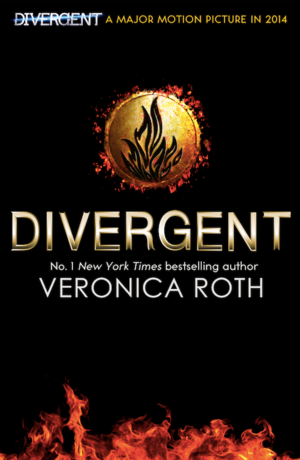
Veronica Roth Talks About Utopian Worlds Veronica Roth
На этой странице вы найдете полный текст песни "Veronica Roth Talks About Utopian Worlds" от Veronica Roth. Lyrxo предлагает вам самый полный и точный текст этой композиции без лишних отвлекающих факторов. Узнайте все куплеты и припев, чтобы лучше понять любимую песню и насладиться ею в полной мере. Идеально для фанатов и всех, кто ценит качественную музыку.

If utopian fiction became the new trend, I wouldn’t read it.
If you actually succeed in creating a utopia, you’ve created a world without conflict, in which everything is perfect. And if there’s no conflict, there are no stories worth telling — or reading! It would be all, “Jenny thought she might not be able to attain her lifelong dream of marshmallow taste tester for a little while … but she did!” and, “John’s dad said he couldn’t go to the movies, so John asked really nicely and his dad changed his mind.” I’m bored already.
But if I were going to create a utopia, I would make a world in which everyone is focused on their personal, moral obligations, and strives to be the best possible version of themselves. They would be allowed to choose whatever path they wanted in life. They would know what was expected of them, they would have a clear purpose, and they would have a strong sense of group identity and belonging. And there would be five factions…
Oh, wait. I tried that already.
But seriously: Divergent was my utopian world. I mean, that wasn’t the plan. I never even set out to write dystopian fiction, that’s just what I had when I was finished. At the beginning, I was just writing about a place I found interesting and a character with a compelling story, and as I began to build the world, I realized that it was my utopia. And then I realized that my utopia was a terrible place, and no one should ever put me in charge of creating a perfect society.
Maybe it’s a little depressing to think that my vision of a perfect world is actually so messed up, but I think it means that I don’t really understand what “perfect” is. To me it’s all about virtue and responsibility; to someone else it would be about happiness and peace, and happy drugs would be pumped into the water supply — but that sounds like a nightmare, doesn’t it? Because both of us are wrong about perfect. We have no idea what it would look like, and our approximations of it are incomplete.
And that gives me a lot of hope, because if I don’t know what perfect means, it’s not something I can reach on my own. Which means that I can stop trying to be perfect and just try to love the people around me and the things I’m doing. And strangely enough, that’s Tris’s journey. She tries selflessness on for size, and then she tries bravery, but at the end, it’s what she does out of love that’s more important than any virtue.
I think maybe utopian fiction would actually look just like dystopian fiction, depending on who you are. To the heartbroken person, a world that eradicates love might be a utopia; to the rest of us, it isn’t. To the person who doesn’t have a plan, a world in which everything is planned out for you might be a utopia; to those of us who like to choose our own adventure, it’s definitely not.
So maybe I’ve changed my mind — maybe I would read utopian fiction. Or maybe I already am. What a scary thought.
Комментарии (0)
Минимальная длина комментария — 50 символов.












